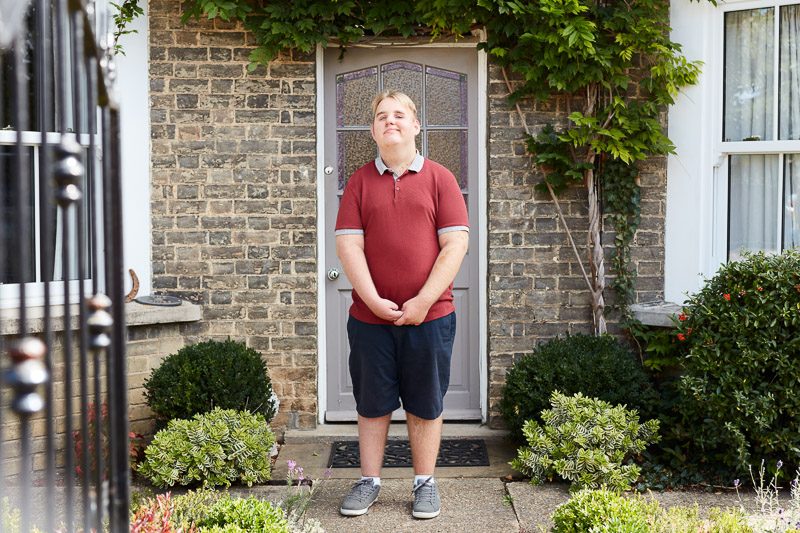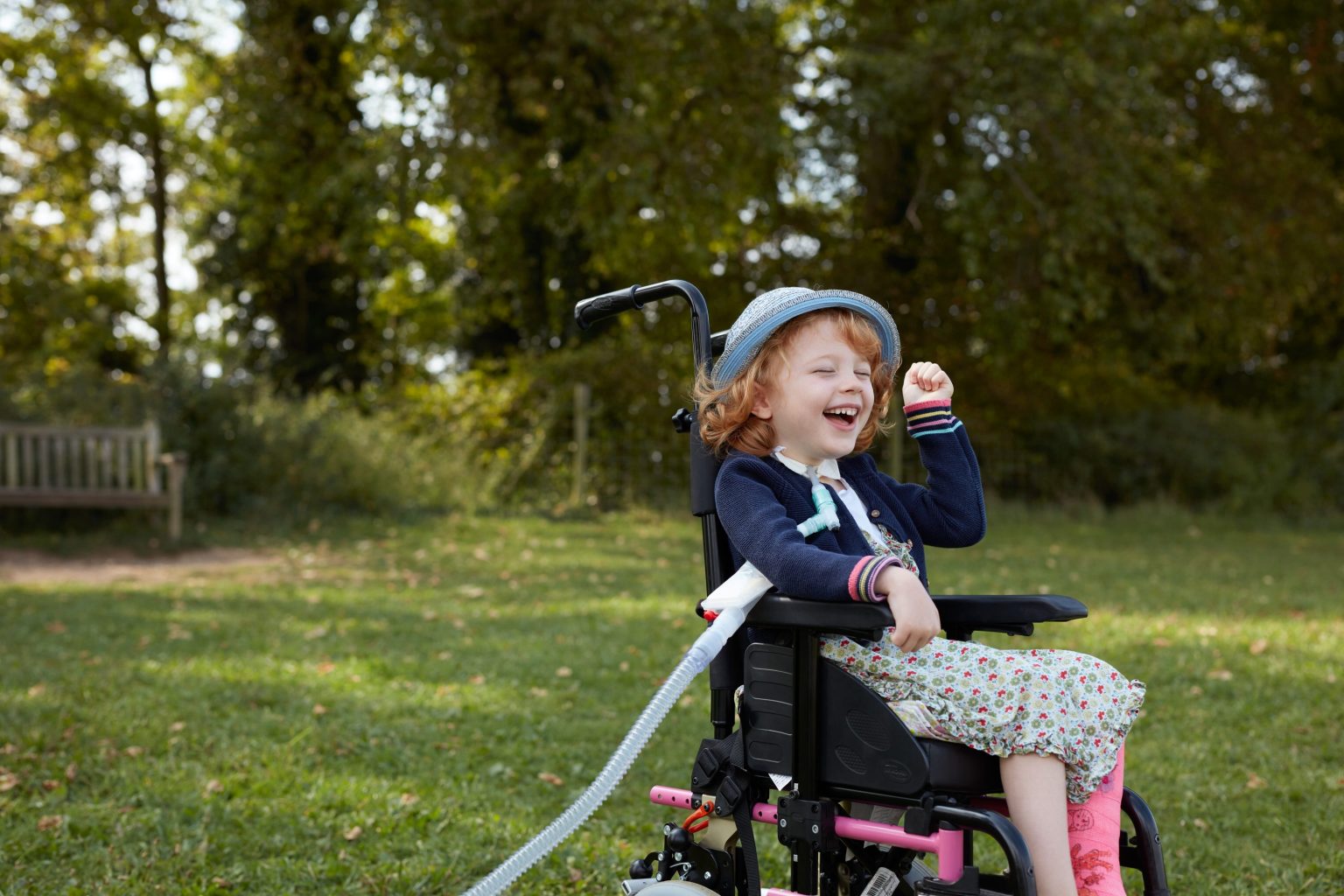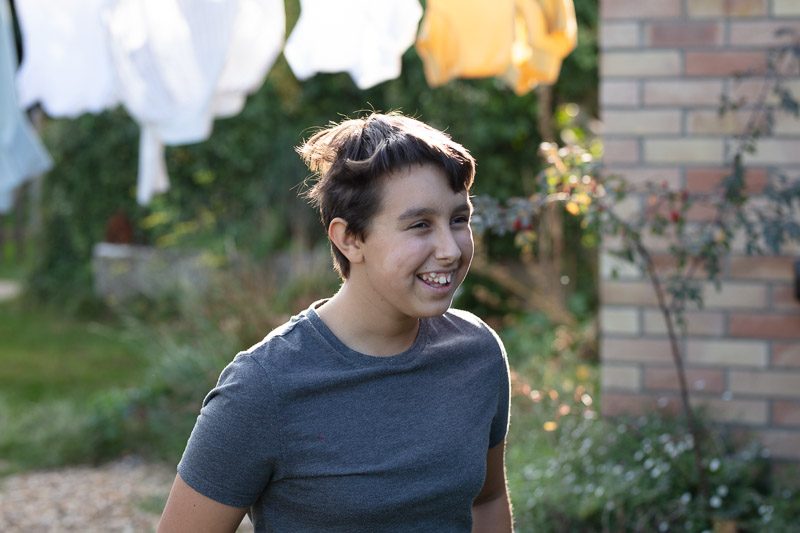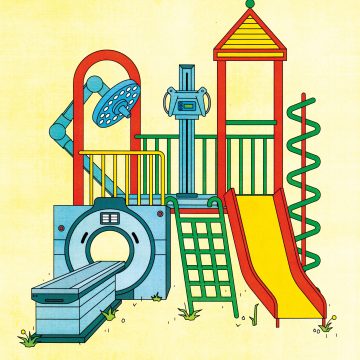Treating the whole child
The Cambridge Children’s Hospital and on-site research centres are set to transform the way we treat – and prevent – mental and physical illnesses in children.
When a sick child is taken to hospital, they and their families need a lot of support – medical, emotional, psychological and educational. But often, that support is provided by different arms of the health service, in different places and often miles apart. It means that care is siloed – and the child treated as if they can be healed piece by piece.
The impact can be devastating. A child with an eating disorder who is receiving mental health care in an inpatient unit, for example, may be severely underweight and need to be under the care of a gastroenterologist as well. But few hospitals have both services under one roof. “So, at that point, they usually have to be taken to another hospital, and their psychological care often pauses,” says Professor Tamsin Ford, Head of Department of Psychiatry at the University of Cambridge, and Honorary Consultant Child and Adolescent Psychiatrist at Cambridge and Peterborough Foundation Trust.

For Professor David Rowitch, Head of Paediatrics, and others that is a travesty – and helps explain why the University is launching a bold new endeavour, Cambridge Children’s Hospital. It’s the first of its kind to treat the whole child, seamlessly integrating physical and mental healthcare, and thus helping to re-conceive child health provision and disease prevention, starting at birth.
“We need a new hospital model, and this one will be a transformation in culture,” Rowitch explains. “Cambridge Children’s will harness the University’s extraordinary expertise to fulfil both a worldwide and an NHS need to tackle the mental health crisis in young people. And it will be holistic, recognising that you can’t disassociate body and mind.”
We need a new way to deal with healthcare challenges today, because it’s clear the old ways aren’t working.
Alongside the full range of physical and mental health services, staff will be trained and upskilled to reflect the holistic ethos. Medical teams will include psychiatric and psychologically informed allied health professionals, caring more effectively for children with chronic diseases like cancer and complex rare conditions. Psychiatric teams will include consultants, nurses and junior doctors upskilled to care for physical health conditions.
But Cambridge Children’s also has another hugely ambitious goal: to not just treat illness but also to prevent it. So at its heart will sit a unique, pioneering 5,000m2 research institute, made up of six discrete but closely connected and highly collaborative research centres. They will be dedicated to understanding the early origins of diseases, improving life trajectories and shifting medical practice from reactive care to prevention. The two flagship centres, the Centre for Genomic Medicine and the Mental Health and Neurodevelopmental Centre, will each occupy around 1000m2 of prime dry and wet laboratory space.

Having a research institute like this, actually located within the hospital, is intended to promote mixing of clinicians, patients, families and researchers, and will have a transformative effect, believes Rowitch, who began his career at Dana-Farber Cancer Institute, Harvard Medical School in Boston, where labs and clinics were co-located. “That meant researchers would see patients in the lift, in the lobby, on their way to chemo. It had a subtle but very profound effect. It made them think far more deeply about translating their work, the significance of it, the real-world effect. That is a very important link to make.”
Which is why Cambridge Children’s is an incredible opportunity to do things differently, he believes. “We need a new way to deal with healthcare challenges today, because it’s clear the old ways aren’t working. But there’s no paradigm for this. There is no rule book – so that means we have to innovate; and the Cambridge ecosystem is obviously ideal for hatching new solutions.”
The Mental Health and Neurodevelopmental Centre
“The seeds of many long-term health conditions that people suffer in middle and old age often lie in childhood and adolescence,” says Ford. She cites a particularly alarming statistic – that if you have a severe mental illness, your life expectancy is reduced by 15 to 30 years – and says she is determined that the Mental Health and Neurodevelopmental Centre at the new Cambridge Children’s Hospital will help to close that gap. “Today’s young people are tomorrow’s parents,” she says. “So, the benefit they get from better research and treatments and early interventions will transmit to the next generation.”
The Centre will utilise the power of big data, while at the same time integrating its research with clinical practice and training. Good data saves lives, says Ford: putting groups of people with similar difficulties together to follow their outcomes over time will allow much better understanding of who has good outcomes and who needs an alternative approach. “For example, perhaps we find from the data that one group is presenting with a mental health condition relatively late in life. How could we identify them earlier?”

Certain adverse childhood experiences such as bullying, maltreatment or having a parent with serious mental illness, for example, increase a child’s likelihood of having a mental health condition. Early intervention, says Ford, could have a massive positive effect on a child’s life. “Imagine if we could ensure that a child at risk from anxiety and school refusal doesn’t develop the condition and is then able to reach their full potential.”
And it will identify physical illnesses which put a child at increased risk of a mental health condition: more than 50 per cent of children with chronic epilepsy, for example, also have a mental health problem, and few of them currently access treatment. The Centre’s data scientists will, of course, engage in extensive consultation with patients, carers and the public to ensure that everyone understands what their data is being used for, and why.
Early intervention would save countless interventions, vast misery and a huge amount of money
Having the Centre sited within the hospital will make it far easier to access patients for randomised controlled trials, as parents will be asked on admission if they are willing to be entered on a database that would allow researchers to contact them or their doctor should a suitable trial be starting, to discuss if they might like to join it. This will enable access to novel and hopefully better treatments. Trials will be able to happen more quickly, so effective new therapies will be available more quickly. And the quality of the data will be better, says Ford. “We will be able to access hard to-reach groups, so our learning from research will be more robust because it will be more representative of the population we are working with.”
Epidemiology will also play a key role: which children are more likely to get which conditions, and why? For example, Ford’s team is examining the overlap between any long-term health condition and any mental health condition in a national population dataset. This will help to identify gaps in service provision.
“If we can intervene earlier, if we can treat better, we can improve quality of life. More people could live their lives without disability and frequent hospital trips. Early intervention would save countless interventions, vast misery and a huge amount of money.”
The Centre for Genomic Medicine
It’s hard to think of a better place for a groundbreaking centre for genomic medicine than the university of Franklin, Crick, Watson and Sanger – and, more recently, Professors Shankar Balusubramanian and David Klenerman, inventors of next-generation DNA sequencing. “The Centre for Genomic Medicine at Cambridge Children’s will take that extraordinary expertise and put it into paediatrics,” says Rowitch.
The Centre’s research will develop fundamental genetic science, or ‘functional genomics’ building on the groundbreaking work already being carried out across the University. It will find effective treatments such as new drugs, gene and cell therapies, and it will use genomic information to better predict health risks and focus on delaying onset or even preventing a range of conditions like obesity, diabetes, heart disease and mental health conditions.
The Centre’s work will put an end to the “diagnostic odyssey” which sees seriously ill but undiagnosed children and their parents experience years of stress, tests and appointments with different specialists.
For those children with rare genetic dieases, the Centre’s work will put an end to the “diagnostic odyssey” which sees seriously ill but undiagnosed children and their parents experience years of stress, tests and appointments with different specialists. Rowitch’s team completed a study sequencing the whole genome of about 150 seriously ill children and their parents in 2019 – the map that in many cases explained the cause of their disease. The benefits shown from this work supported the NHS implementing whole genome sequencing, and made new testing available that same year – nationally. The Centre will take that work to the next level and aims to support effective use of genomic medicine across the UK and internationally.

“For example, we have found that 45 per cent of children who have a neurological disorder – let’s say, a child admitted to ITU with a seizure – have a genetic condition,” says Rowitch. “So rather than just saying a child has a seizure, we can now say they have a seizure of this particular subtype. And that means we can give them the most effective ‘precision’ treatments, providing a higher standard of care.”
It will also help to bridge the gap between paediatric practice and what’s happening in the lab, says Rowitch. “If we have a child with a unknown genetic disorder, we can work with scientists from the Cambridge Instutite for Medical Research, who as part of a novel collaboration funded by the Rosetreees Trust, are very keen to explore that further to define how a change in a child’s DNA could be the cause of disease.”
Collaboration and inclusion will run through the heart of all the Centre’s research. Along with close links to local health groups and institutions and Cambridge expertise, it hopes to forge global partnerships, reaching out to patient groups and research communities across the world, with a particular focus on low- and middle-income countries.
A radical approach to prevention – being proactive rather than reactive – is key to the Centre’s work.
And a radical approach to prevention – being proactive rather than reactive – is also key to the Centre’s work. Sequencing a child’s and parent’s genome will mean clinicians will be able to identify not just genetic conditions which are already affecting a child, but also those which might affect them in the future.
“When doctors talk about prevention, they are usually talking about interventions in middle age,” says Rowitch. “But understanding the origins of disease and treating earlier could be a significant way to mitigate the disease burden or prevent the disease altogether. In short: why wait? We could start so much earlier – and the Centre will make this possible. This is what we are calling the ‘new Paediatrics’, a paradigm in which a child’s first doctor begins caring for the whole life.”
Discover how you can support the Cambridge Children’s Hospital.
Join Dr Robert Heuschkel and Dr Louise Allen on Friday 24 September 2021 to hear more about the Cambridge Children’s Hospital and how it will transform healthcare. Book your free place today.







